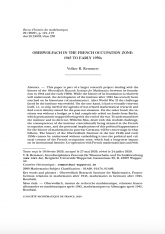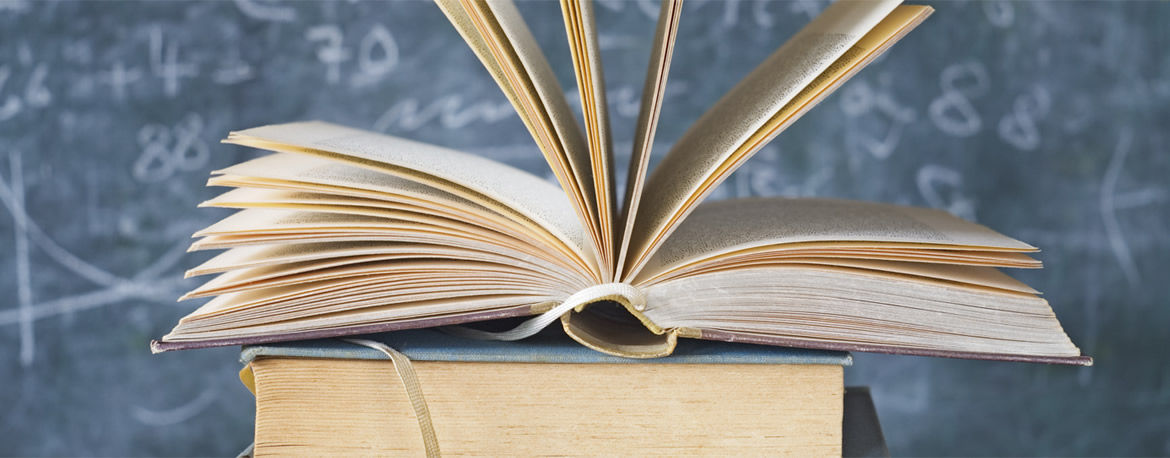L'institut Oberwolfach dans la zone française d'occupation : de 1945 aux années 1950
Oberwolfach in the French Occupation Zone : 1945 to early 1950s

- Consulter un extrait
- Année : 2020
- Fascicule : 2
- Tome : 26
- Format : Électronique
- Langue de l'ouvrage :
Anglais - Class. Math. : 01A60, 01A74, 01A80
- Pages : 121-172
- DOI : 10.24033/rhm.230
Cet article fait partie d'un projet de recherche de plus grande envergure sur l'histoire de l'Institut de recherche mathématique d'Oberwolfach de sa fondation en 1944 au début des années 1960. Tandis que le contexte de la fondation de cet institut est relativement bien connu, son développement après 1945 a peu été étudié par les historiens des mathématiques. La fin de la Seconde Guerre mondiale a placé l'institut face à un double défi. Contraint, d'une part, de se réinventer afin de se débarrasser du programme fixé par la guerre à la recherche mathématique, l'institut s'est cherché une nouvelle identité conforme au contexte d'après-guerre. Il s'est d'autre part trouvé dénué de tout budget suite à l'arrêt définitif des financements venus de Berlin et dont il avait été entièrement dépendant durant la guerre. L'objectif principal de cet article est d'étudier la manière dont cet institut, avec son directeur Wilhelm Süss, a relevé ce double défi en s'inscrivant dans la conjoncture, nouvelle, de la zone d'occupation française. Il s'agira ainsi de saisir les implications de cette conjoncture politique spécifique pour l'histoire des mathématiques dans l'Allemagne d'après-guerre. De la fin des années 1940 au début des années 1950, l'histoire de l'Institut d'Oberwolfach ne pourrait être comprise hors du contexte politique et culturel de la zone d'occupation française tant ce contexte a participé à une redéfinition de l'identité de l'institution sur le temps long. La coopération avec les mathématiciens français et les autorités françaises était désormais devenue essentielle au développement d'une nouvelle vision de l'Institut.

